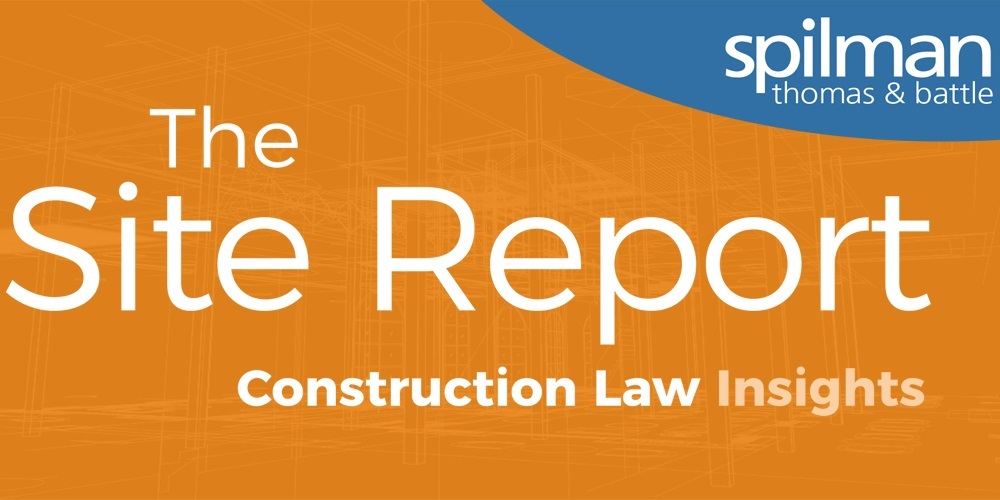Article
Resources
Article
A Look at the Pennsylvania Statute of Repose

The Pennsylvania Statute of Repose for Improvements to Real Property, 42 Pa. C.S. § 5536 (PA Statute of Repose) is a powerful tool that provides protections to persons lawfully performing or furnishing the design, planning, supervision, or observation of construction, or construction of any improvement to real property. The PA Statue of Repose bars any claims for personal injury or injury to property based on defects in those improvements, or for the defects themselves, that are brought after twelve years since the completion of the improvement. The law requires (1) the defense be asserted by a member of the protected classes (i.e., those performing lawfully the design, planning, supervision, construction, or observation of construction) (2) concerning an improvement to real property that (3) was completed over twelve years prior to the claim being made.
There are a great number of cases that discuss what constitutes an improvement to real property. Fixtures to real property (i.e., those items attached to real property) have consistently been found to be improvements. The statute has been applied to such fixtures as a coal delivery system, an elevator system, an elevator shaft, a skylight/skydome, and a marble facade on a building, just to name some examples of improvements. The Supreme Court of Pennsylvania has held that the determination of whether an item is a fixture is to be based upon an objective determination of the following factors:
the degree to which and manner in which the object is attached to real property, . . . the ease of removing the object, . . . whether the object may be removed without damaging the real property, . . . how long the object has been attached to the real property, . . . whether the object is necessary or essential to the real property, . . . and the conduct of the party and whether it evidences an intent to permanently attach the object to the reality . . . .
Noll v. Harrisburg Area YMCA, 537 Pa. 274, 288-89, 643 A.2d 81, 88 (1994).
A recent decision of the Pennsylvania Superior Court clarified two points to the PA Statute of Repose. The first is who is considered to be a person lawfully providing services that are covered under the law. Johnson v. Toll Brother, Inc, 302 A.3d 1231 (Pa. Super. 2023). In that case a homeowner sued a construction contractor for defects installed in door frames, brick facades, and windows that allowed significant water leakage into the house. The homeowners argued that because the defects resulted from violations of building codes, the contractor could not be deemed to have lawfully constructed the improvements. The court rejected that argument and found that the term “lawfully” referred to whether the contractor was authorized to do the construction work under the laws of Pennsylvania, and did not refer to whether the work was done in accordance with applicable building codes. The Court, citing to Branton v. Nicholas Meat, LLC,159 A.3d 540 (Pa. Super. 2017), characterized the term “lawfully” as to authorization to engage in the activity, “If any individual who possesses a valid driver’s license is speeding, he is not legally operating the vehicle because he is driving over the posted speed limit. Nonetheless, he is lawfully operating the vehicle because he is licensed to do so.” 159 A.3d at 555, n.14. Therefore, according to the court, even if the work was done in violation of certain building codes, the contractor could still be deemed to be lawfully providing construction services.
The second issue in the case addressed a provision in the PA Statute of Repose that extends the period in which a claim may be brought if an injury or wrongful death should occur within the tenth, eleventh, and twelfth years after completion of construction, a claim may be brought within 14 years of completion of the improvement. The homeowners argued that their claim was timely within the 14-year exception because the damage they sustained to their home was ongoing during the tenth, eleventh, and twelfth years even though the defect had actually manifested itself no later than eight years after completion of construction. The court disagreed, finding that the 14-year exception did not apply to ongoing defects but only those that first arise during the tenth, eleventh, and twelfth years after completion. The court found that interpreting the statute as the homeowners had argued would lead to an automatic two-year exception in every instance, contrary to the plain language of the statute.
If you believe the Pennsylvania Statute of Repose may be a defense to any claims brought against you for project defects or injury to persons or property, please contact our Construction Practice Group.


